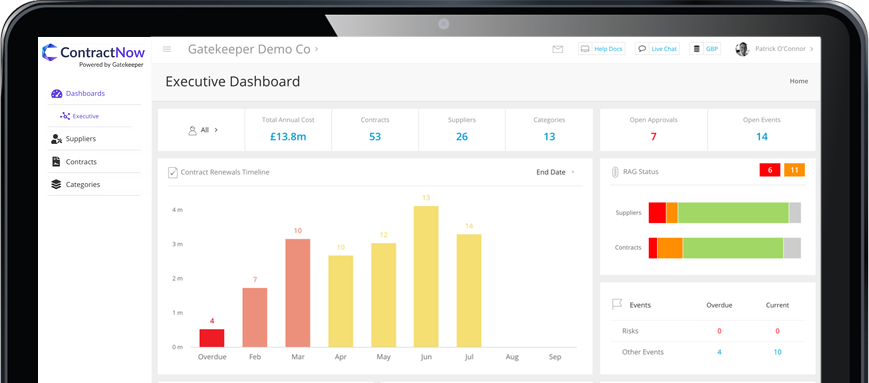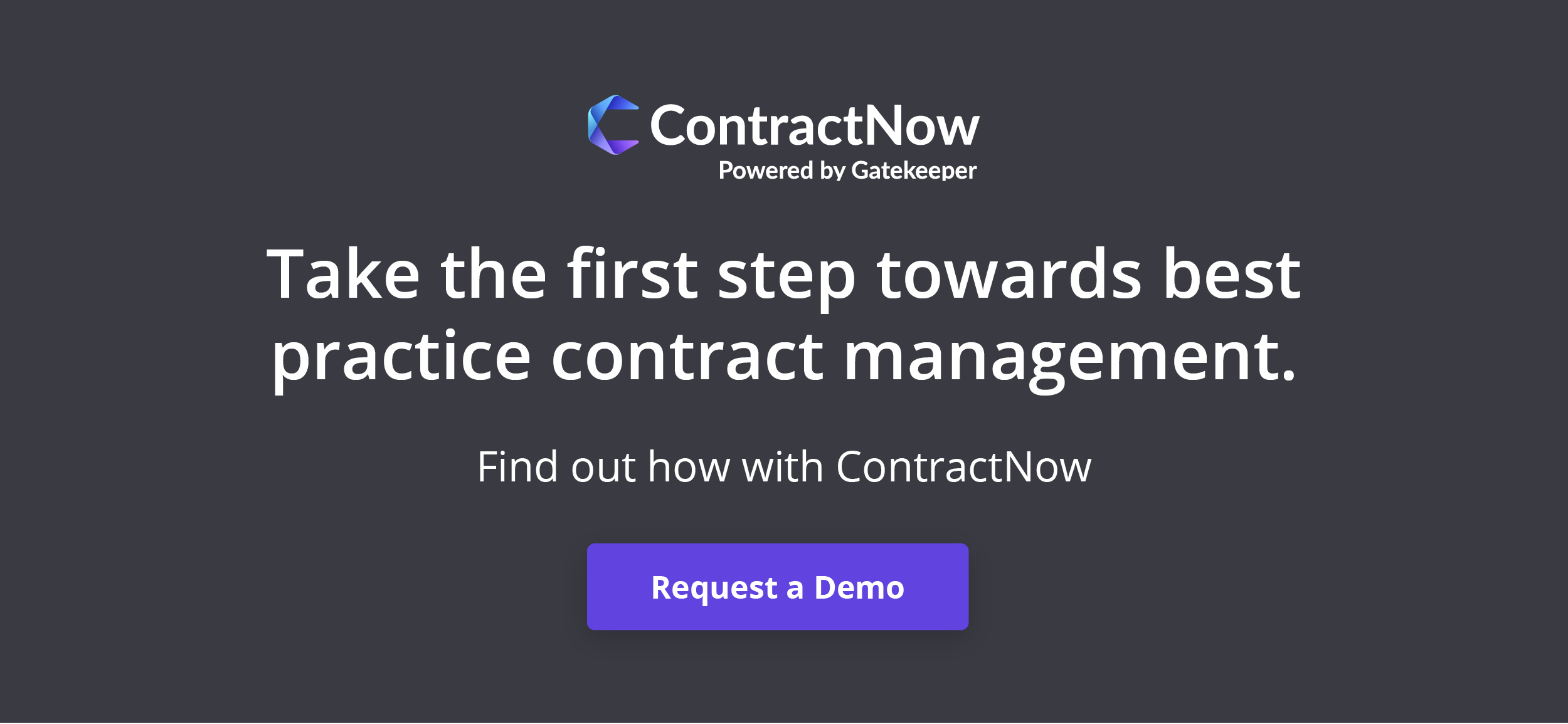Simple, effective contract management is the goal for businesses of all sizes. It’s a crucial process that, when applied with best practice, can yield benefits for a business’s efficiency, relationships and bottom line. The first step to achieving this simplicity is to centralise all available information in a contract repository.
Being able to easily view and access contracts in one place creates a more collaborative experience across the organisation and contributes to good contract management, but be warned, it can also lead to a false sense of security.
Just because contracts are centrally stored doesn’t mean that they are effectively managed.”
The way in which centralised contracts and their metadata are actioned is key to significantly improving overall contract lifecycle management.
Simple contract management comes from a business’s ability to:
- Interrogate contract data to identify trends and insights
- Identify hidden risks, delinquent spend and opportunities for consolidation
- Use a holistic view of a business’s contract portfolio to drive business decisions
- Standardise and digitise processes while aligning people with beneficial technology
The metadata contained within each contract needs to be extracted and treated as a compelling data source.
From your business’s simplest contracts through to the most complex and important, all will contain important data-points and learnings that can help your business to drive more effective contract management behaviours and processes.
How to manage departmental demands for data
Contract management is a naturally collaborative process, with any agreement typically passing through a number of teams such as Legal, Sales, Finance and Procurement.
While the objective of a contract at the business level is to receive or deliver services or goods, internal teams will have underlying objectives that need to be met.
Contract metadata can be collated and interrogated in a myriad of ways but this can often lead to competing demands from different departments, based on the view they want to see.
These options may include:
- Overall spend data across a period of time
- Dates of upcoming renewals across the entire portfolio
- Performance reports for third-party suppliers
- Compliance status of existing contracts against regulatory policies
- The risk profile of the contract portfolio or most significant contracts
For those working in contract management, fulfilling these demands can prove difficult and result in hours of contract administration – especially if there is no easy way to aggregate, analyse and present the data.
For businesses managing contracts through spreadsheets, gathering all this information will be a time-consuming process and by the time a report is presented the information is likely to be outdated.
To manage competing departmental demands, businesses need to be able to slice and dice data quickly, accurately and present it in an easy-to-digest format. This is where contract management dashboards play a vital role."
How dashboards support simple contract management
Dedicated contract management software such as ContractNow will come with customisable dashboards built-in for reporting purposes.
This dashboard will provide a quick, easily viewable summary of company information. This will help departments to easily spot trends, metrics, identify any anomalies and immediately answer the important questions they have about contracts.
The dashboard you present will be different based on the department it’s being delivered to, so you need a solution that can support you with multiple, customisable dashboards. This will allow you to include relevant data for your audience and answer questions such as:
- How much are certain contracts worth?
- What is actual spend against forecast spend?
- Which vendors are underperforming?
- How is the value of contracts split across different teams or geographies?
- How many renewals are due within the next six months?
These are business critical questions and so quick answers through a contract management dashboard will drive immediate, optimising actions across the business.
 ContractNow's Executive Dashboard
ContractNow's Executive Dashboard
How dashboards drive organisational change
The top level summaries provided by dashboards support simple contract management by improving visibility across the portfolio. The customisation of dashboards also leads to greater cross-departmental understanding of existing contracts and the value they bring to the business.
But much like the way storing contracts centrally doesn’t improve contract management, neither does simply looking at data on a dashboard. Dashboards are only beneficial to businesses if the data they present, or highlight as missing, is acting upon. This includes:
- Taking remedial action for vendors with lapsed certificates that threaten compliance
- Creating mitigation strategies when contract risks are identified
- Sharing spend information and consolidation opportunities with relevant departments
- Reviewing vendor performance and the market for alternatives ahead of renewals
- Communicating positive trends and wins across the business
Dashboards don’t need to be, and shouldn’t be, full of complex and overwhelming data. This will only create further bottlenecks and discussions within the business, slowing down time-critical decision-making.
Instead dashboards should help businesses to achieve simple contract management by presenting essential information in a straightforward way – becoming a catalyst for change in the way contracts are handled.
Put dashboards at the centre of your contract management practices
If your business’s contract management processes and contract metadata are fragmented, dashboards will never be able to provide an accurate, aggregated real-time snapshot of your business.
If you’re still using manual processes such as Excel spreadsheets, if your teams are working from different versions of a contract or if your internal processes lack standardisation, then you have a business case for implementing contract management software.
Whether departments within your business want to know about renewals, performance or compliance, a dashboard can help you to present the necessary information.
Deciding what to include or exclude in your dashboard, depending on your audience, will be key to driving decisions that result in simple contract management.
Dashboards provide a great way to understand, analyse and review how your current contract portfolio is performing, the value it’s delivering and how well it’s being managed."
By keeping your dashboard succinct, you can answer key business questions and make critical business decisions based on accurate information.
If you want to know more about using dashboards to achieve effective contract management, or how ContractNow can give you more control over your contract information, contact us today.




